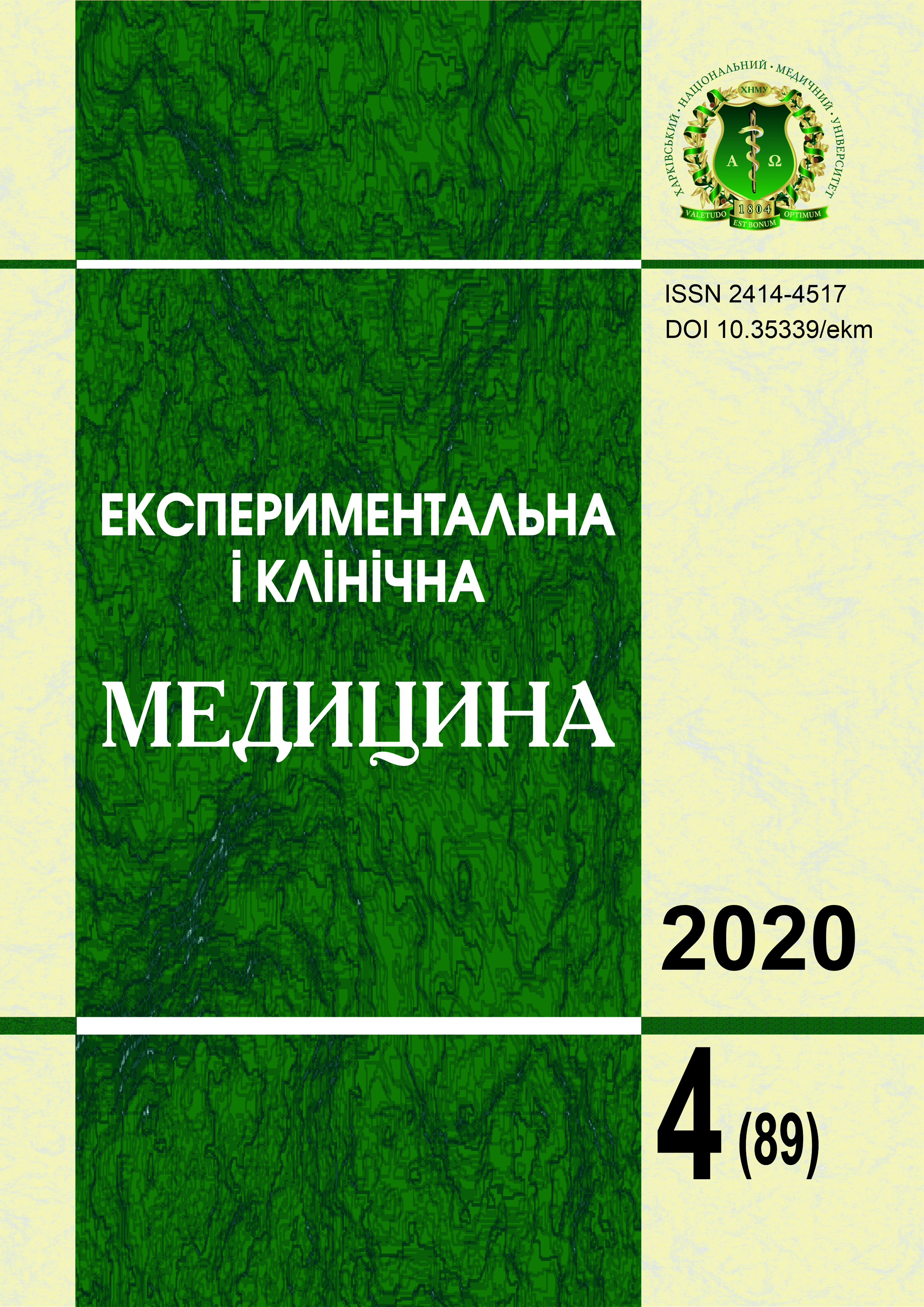Abstract
The situation related to addictive behavior is considered to be quite significant for all countries of the world, Ukraine is no exception. The reason is the key difference between the worldview and thinking stereotypes of recent generations, brought up in different socio-economic conditions, as well as due to the protracted economic, political and social crisis. 76 young men (16-24 years old) were examined. All subjects sought for psychiatric help with complaints of polymorphic symptoms, the most relevant were bad mood, anxiety with panic attacks, body tremor, disturbed sleep, fear, several patients had suicidal thoughts, which were often on the background of gambling and Internet addiction. In all patients there were manifestations of somatic pathology along with mental disturbance. In non-chemical addiction, the implementation of distress is accompanied by a destructive effect and is manifested by a wide range of mental and somatic clinical symptoms. And as a consequence causes disorders in various organs and systems. The data obtained necessitate further clinical studies, and for patients who seek help should be a set of therapeutic and diagnostic measures to improve the mental and physical of their condition.
Keywords: distress, non-chemical addiction, somatization, depression.
References
Vorobyova S.V. (2012). Razrabotka programm profilaktiki sotsialnykh zavisimostey podrostkov [Development of programs for the prevention of social addictions of adolescents]. Vospytatelnaia rabota v shkole – Educational work at school, No.10, pp. 49–53 [in Russian].
Maznichenko M.A., Neskoromnykh N.Y. (2012). Stsenaryy voznyknovenyia sotsyalnykh zavysymostei podrostkov [Scenarios of the emergence of social addictions in adolescents]. Vospytatelnaia rabota v shkole – Educational work at school, No.10, pp. 93–99 [in Russian].
Bohomolova M.A., Buzyna T.S. (2018). Internet-zavisimost: aspekty formirovaniia i vozmozhnosti psikhologicheskoy korrektsii [Internet addiction: aspects of the formation and possibilities of psychological correction]. Medytsynskaia psykholohyia v Rossyy: эlektron. nauch. zhurn – Medical psychology in Russia: electron. scientific. zhurn., vol. 10, No.2(49). Retrieved from http://mprj.ru [in Russian].
Yang K.S. (2000). Dyahnoz – internet-zavysymost [Diagnosis – Internet addiction]. Mir Internet – World of the Internet, No.2, pp. 24–29 [in Russian].
Choi C., Hums M.A., Bum C.H. (2018). Impact of the Family Environment on Juveline Mental Health: eSports Online Game Addiction and Delinquency. Int. J. Environ. Res. Public Health, No.15, p. 2850.
Druzin V. N. (2011). Pedahohycheskaia profilaktika igrovoy komp'yuternoy addiktsii podrostkov [Pedagogical prevention of computer game addiction in adolescents]. Extended abstract of candidate`s thesis. Yaroslavl [in Russian].
Griffiths M.D., Nuyens F. (2017). An Overview of Structural Characteristics in Problematic Video Game Playing. Curr. Addict Rep., No.4, pp. 272–283.
Egorov A.Yu., Grechany S.V. (2019). Sovremennye podkhody k terapii i korrektsii internet-addyktsii [Modern approaches to therapy and correction of Internet addiction]. Zhurnal nevrologii i psikhiatrii im. S. S. Korsakova – Journal of Neurology and Psychiatry. S. S. Korsakov, No.119 (6), pp. 152–159 [in Russian].
Nakayama H., Mihara S., Higuchi S. (2017). Treatment and risk factors of Internet use disorders. Psychiatry Clin Neurosci, vol. 71 (7), pp. 492–505.
Maznichenko M.A (2012). Vospitatelnyye situatsii kak metod kompleksnoy profilaktiki sotsialnykh zavisimostey podrostkov [Educational situations as a method of complex prevention of social addictions of adolescents]. Sotsialnaia pedagogika – Social pedagogy, No.6, pp. 31–48 [in Russian].
Osukhovska O.S., Aymedov K.V. (2010). Doslidzhennia rozpovsyudzhenosti ta osoblyvostey zalezhnosti vid azartnykh ihor yak formy nekhimichnoyi adyktsiyi sered hromadian Ukrainy [Research of prevalence and peculiarities of dependence on gambling as a form of non-chemical addiction among citizens of Ukraine]. Arkhiv psykhiatriii – Archive of Psychiatry, No.1 (60), pp. 58–63 [in Ukrainian].
Denisenko M.M. (2016). Osoblyvosti ta varianty spivvidnoshennia riznykh adyktyvnykh tendentsiy u khvorykh na nevrotychni rozlady [Features and variants of the ratio of different addictive tendencies in patients with neurotic disorders]. Eksperymentalna i klinichna medytsyna – Experimental and clinical medicine, No.3 (72), рр. 99–107 [in Ukrainian].

